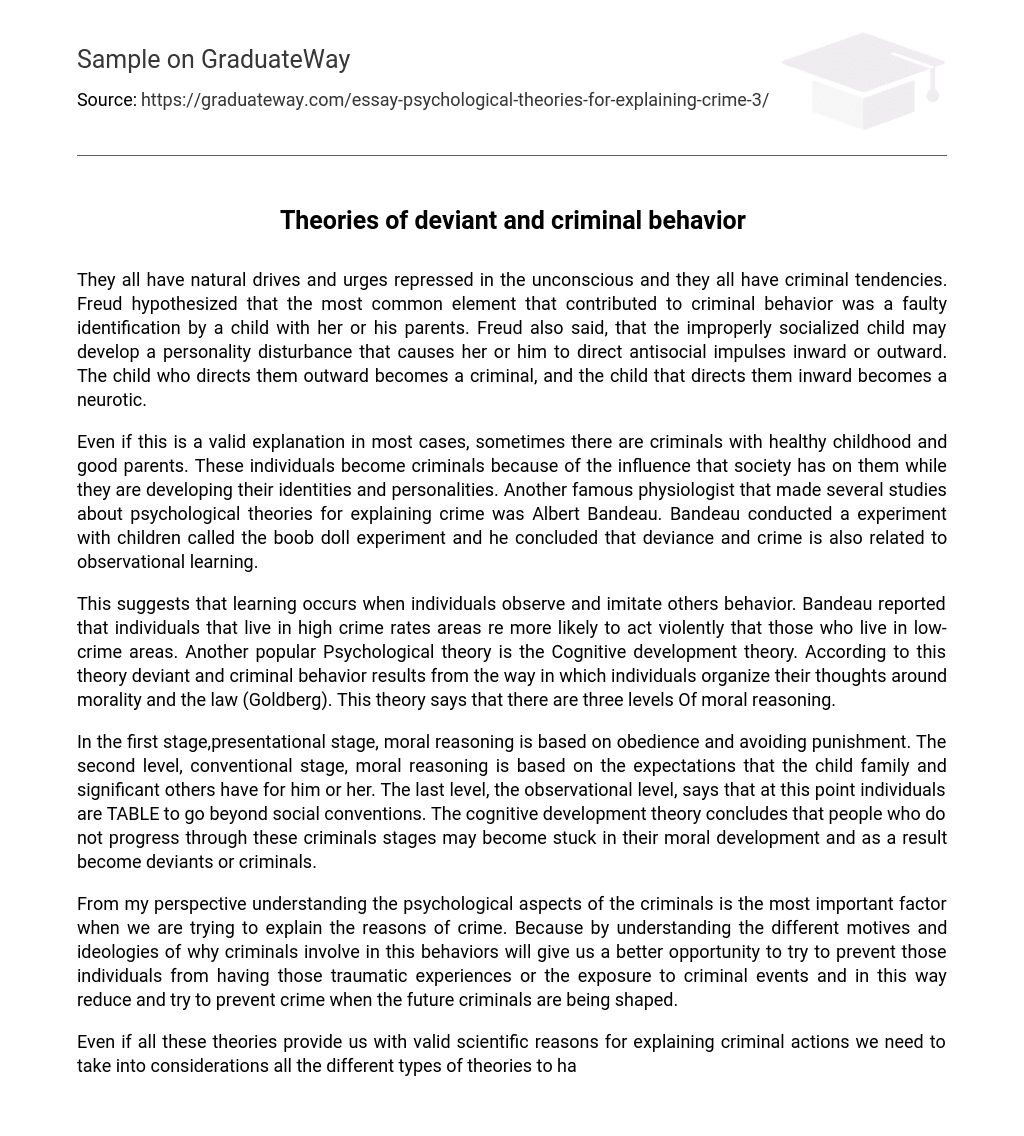According to Freud, individuals who have repressed natural drives and urges in their unconscious also possess criminal tendencies. Freud theorized that a flawed identification with parents during childhood is the primary factor contributing to criminal behavior. Additionally, he stated that a child who is inadequately socialized may develop a personality disturbance that results in the redirection of antisocial impulses either internally or externally. The outward expression of these impulses leads to criminal behavior, while the inward redirection leads to neurotic tendencies.
While it may be a valid explanation in many instances, there are also cases where criminals had good upbringings and supportive parents. These individuals turn to crime due to the impact of society on their development of identity and personality. Another renowned psychologist who conducted numerous studies on psychological theories of crime is Albert Bandeau. Bandeau conducted an experiment with children known as the boob doll experiment, which led him to conclude that deviance and crime can be attributed to observational learning as well.
The statement implies that learning happens when people observe and mimic others’ actions. Bandeau discovered that individuals residing in areas with high crime rates are more prone to behaving violently compared to those in low-crime areas. Another popular theory in Psychology is the Cognitive Development Theory. According to this theory, deviant and criminal behavior is a consequence of how individuals structure their thinking regarding morality and the law (Goldberg). It proposes that there are three stages of moral reasoning.
In the initial stage, known as the presentational stage of moral reasoning, individuals make decisions based on obedience and the desire to avoid punishment. The second level, called the conventional stage, involves moral reasoning that is influenced by the expectations set by one’s family and significant others. Finally, the observational level posits that individuals are capable of surpassing social conventions. According to the cognitive development theory, those who do not advance through these stages may find their moral development stagnating and potentially resulting in deviant or criminal behavior.
In my opinion, gaining insight into the psychological aspects of criminals is crucial in our attempt to comprehend the causes of crime. By comprehending the varying motives and ideologies that drive individuals to engage in criminal behavior, we can better address and prevent future criminals from experiencing traumatic events or being exposed to criminal activities. This approach will ultimately lead to a reduction in crime rates as we shape the future criminals.
Although these theories offer valid scientific explanations for criminal behavior, it is necessary to consider all types of theories to have a comprehensive understanding of why individuals engage in deviant actions. The variations and interpretations of these theories are important factors in analyzing the multiple reasons behind such behaviors.





